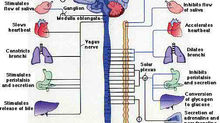Hypnosis Theory - State and Non-state
- tomjlynam

- Jan 6, 2015
- 2 min read
Sheffield Hypnotherapy
There are several different theories as to how hypnosis actually works. This will be the first of a few blog posts exporing the differing concepts which underlie the phonomenon of hypnosis, some are more popular than others although there has been no definitive agreement upon which one is universally acknowledged.
All theories can be broadly divided into three categories; state, non-state, and a combination of the two. State theories propose that trance state is a specific experience attached to being in hypnosis, that being in a trance state is the product of altered brain function, that responses to the process are because of special mechanisms such as disscociation (which we'll get into later), and that hypnotisability is stable over long periods. Generally speaking state theories suggest that hypnosis is something very particular and unique, inducing altered states in the individual.
Non-state theories lean towards suggesting that although individuals can respond well to hypnosis, they can respond equally well and change can be brought about outside it. Instead of an altered brain function the individual is simply actively engaged in the process and responses to hypnotherapy are brought about through normal cognitive process incoporating belief, imagination, conviction and expectation. In addition to this, non-state theories say that hypnotic suggestibility can be influenced by drugs or psychological therapies.
It seems as though the two categories are opposed to one another, that non-state theories are purporting that hypnosis does not actually exist and can be explained by other, well documented functions of the mind. However, this is not the case. Whilst state theories are arguing for the hypnotic state to be recognised as being something distinctly different from normal cognitive functioning and its subsequent uses, non-state say that although hypnotic states are not separate from processes that occur outside hypnotherapy, that the efficacy and functionality of other processes and methods are similiar and can produce the same outcomes.
Another angle we could approach this topic from is, does it really matter which is correct or not? The most important aspect of therapy is whether it works or not, and if individuals have a positive experience from their perspective that helps them to bring about change then surely therapy objectives are being achieved. Clearly, this is the case, however not only is it interesting to explore what is happening in the mind while undergoing hypnotherapy, a better understanding can lead to methids and approaches being honed, more clearly defined and described, and this can only be a good thing as it allows us to be more targeted and personalised in the delivery of hypnotherapy, maximising the chances of beneficial change.









Comments